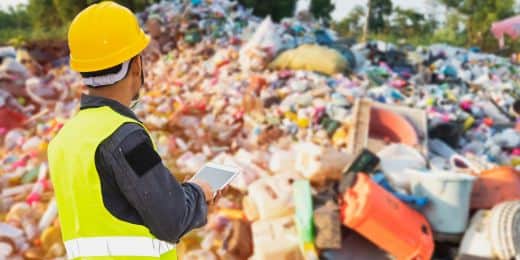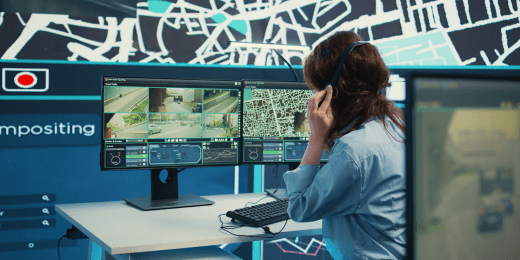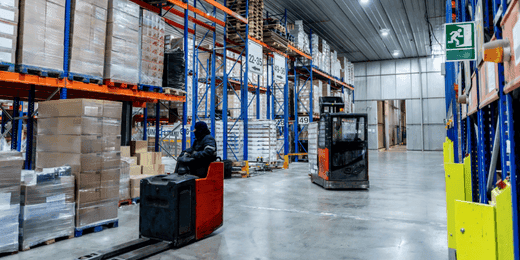A Brief Guide to Plastic Waste Management for Businesses
Ensure responsible and sustainable business operations through efficient plastic waste management practices.

Published 25 Sept 2025
Article by
5 min read
What is Plastic Waste Management?
Plastic waste management refers to the processes and strategies used to collect, sort, recycle, and dispose of plastic materials to minimize environmental pollution. It includes methods such as mechanical recycling, chemical recycling, and waste-to-energy conversion to reduce plastic waste in landfills and oceans. Effective plastic waste management requires collaboration between governments, organizations, and individuals to promote sustainable practices and reduce plastic consumption.
Importance
Implementing an effective waste management system is crucial in addressing the escalating global plastic pollution crisis. Studies show that over 430 million tonnes of virgin plastic are produced every year, with single-use plastics comprising a significant portion of this waste stream.
Without robust waste management systems, mismanaged plastic waste is expected to double to 121 million tonnes by 2050, exacerbating environmental degradation. This is why organizations must create functional waste management systems with specific solutions tailored to reducing plastic waste and ensuring that any plastic waste produced is processed properly.
Integrate ESG principles into your operations
Drive sustainable growth and create long-term value with our ESG solutions.
Plastic Waste Management Regulations
Governments worldwide have put in the effort to ensure plastic waste is processed properly. There are different laws around plastic waste depending on where an organization operates, and it’s crucial for teams to understand the laws in their jurisdiction.
Here are a few of the significant directives and regulations around plastic waste management:
US
The Break Free From Plastic Pollution Act of 2021, introduced in the US Congress, proposes comprehensive measures to tackle plastic pollution. Building upon successful state-level initiatives, this Act outlines strategies such as reducing single-use plastics, implementing extended producer responsibility, and pausing new plastic production facilities. These efforts aim to foster a more sustainable and equitable future by addressing the plastic crisis at its source.
European Union (EU)
The EU’s Single-Use Plastics Directive seeks to prevent and reduce the environmental impact of specific plastic products, particularly those contributing to marine litter. This Directive introduces measures including market restrictions, consumption reductions, and mandatory recycled content for certain single-use plastic items. By promoting a transition to a circular economy, it aims to harmonize legislation across member states and significantly decrease plastic waste.
United Kingdom (UK)
In the UK, the government has implemented an extended producer responsibility scheme for product packaging. This policy mandates that producers cover the costs of managing packaging waste, incentivizing them to design more sustainable packaging solutions. By shifting the financial burden from local authorities to producers, the UK aims to enhance recycling rates and reduce plastic pollution.
Key Methods of Plastic Waste Management
Managing plastic waste can be a complicated task for many organizations. Companies managing plastic waste must consider local regulations while also ensuring that they manage all plastic waste that they produce. While it can be difficult, it’s critical for modern organizations to ensure that they take steps to create a safer and more sustainable future. So, here are a few of the key methods companies use to manage plastic waste.
Recycling
Recycling involves collecting, processing, and reusing plastic waste to create new products, reducing the demand for virgin plastic. The benefits include lowering environmental pollution, conserving resources, promoting a more sustainable supply chain, and cutting greenhouse gas emissions. However, challenges like contamination, high processing costs, and limited recycling infrastructure make large-scale recycling difficult for many companies. Participating in sustainable campaigns such as Plastic Free July is also a great way to practice recycling and raise awareness.
Incineration
Incineration burns plastic waste at high temperatures to generate energy, reducing landfill use and producing electricity or heat. While it helps manage non-recyclable plastics, this method releases harmful emissions and contributes to air pollution if not properly controlled. Additionally, the high costs of advanced filtration systems make it less viable for some businesses.
Landfilling
Landfilling involves burying plastic waste in designated sites, offering a cost-effective and widely used disposal method. However, plastic takes hundreds of years to decompose, leading to long-term environmental damage and potential groundwater contamination. Overfilled landfills also contribute to land scarcity issues, making this a less sustainable long-term solution.
Innovative Uses
Companies are finding creative ways to repurpose plastic waste, such as turning it into construction materials, clothing fibers, or road paving materials. These innovative solutions help reduce waste while creating new economic opportunities. However, widespread adoption depends on investment, technological advancements, and consumer acceptance.
Source Reduction
Source reduction focuses on designing products with minimal plastic content, using biodegradable materials, and optimizing packaging to decrease waste at the source. This method is one of the most effective ways to combat plastic pollution, as it prevents waste before it is created. However, transitioning to sustainable alternatives may require significant investment and changes to manufacturing processes.
Involve Consumers in the Process
Companies can promote reusable alternatives and incentivize customers to cut back on single-use plastics, helping to reduce overall waste. However, the responsibility for managing plastic waste should not fall solely on consumers;businesses and policymakers must also take action through better product design and waste management policies. A collaborative effort between industries, governments, and individuals is essential to creating long-term solutions.
How Technology Can Help
Today, various technological solutions exist to help businesses improve their plastic waste management practices. Using one can help ensure compliance not only with legal environmental standards, but also with safety regulations. Digital solutions such as SafetyCulture can help businesses with streamlining operations with the following:
Cloud-based checklists and reports, for ensuring proper plastic waste management practices are followed and audits are conducted efficiently.
Training solutions, for properly educating staff on proper waste management techniques and regulations to comply with.
Monitoring integrations with air quality sensors and asset tags, f or keeping track of different machinery, workspaces, and tools to ensure they are compliant with regulatory standards.
Manage Plastic Waste Efficiently and Sustainably with SafetyCulture
Why Use SafetyCulture?
SafetyCulture is a mobile-first operations platform adopted across industries such as manufacturing, mining, construction, retail, and hospitality. It’s designed to equip leaders and working teams with the knowledge and tools to do their best work—to the safest and highest standard.
SafetyCulture offers a simple and effective way to enhance your plastic waste management system. The platform allows teams to inspect waste management facilities with digital checklists, keep close watch of assets used in managing plastic waste, and even track plastic waste data to continuously improve their waste management. Through seamless data collection, real-time tracking, and reporting of your progress against sustainability goals, your organization can effectively drive sustainable growth and success.
✓ Save time and reduce costs ✓ Stay on top of risks and incidents ✓ Boost productivity and efficiency ✓ Enhance communication and collaboration ✓ Discover improvement opportunities ✓ Make data-driven business decisions
Related articles
Logistics
Operations

Transportation and Logistics: What’s the Difference?
Learn about the importance of transport and logistics within the supply chain and how it is used in business operations.
Logistics
Operations

An Overview of Transport Network Analysis
Learn about transport network analysis and how network-level insight improves reliability and reduces operational risk.
Manufacturing Procedure
Operations

The Blueprint for Refrigeration Optimization
Learn how refrigeration optimization improves energy efficiency, reduces operating costs, and extends equipment lifespan across industries.